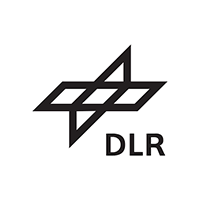Methods and Processing in the Field of Sonar and Radar Technology
Bremerhaven, Germany, DLR Institute of Space Systems [45779]
About this job
The Department of Maritime Security Technologies is dedicated to solving a wide range of technological problems, required for the implementation and testing of innovative concepts for the protection of maritime infrastructures. This includes the development and demonstration of novel instruments and systems, which are capable of recording, evaluating and visualising the protection status of maritime infrastructures in real time and as autonomously as possible.
Responsibilities
Join our team and contribute to the realisation of these new technologies in collaboration with other scientists. You can expect a wide range of tasks in the fields of sonar and radar technology, including the transfer of modern radar methods to the field of hydroacoustics as well as the experimental implementation of your own concepts, both above and below the waterline. Thus, you will take an active role in the development, testing and analysis of innovative local and remote sensing systems.
Hydroacoustic methods are uniquely able to obtain long range underwater positional images. Help us to realise innovative situation images by developing, together with us, advanced methods for hydroacoustic telemetry. For this purpose, you will use the latest developments in the fields of sonar and radar technology. You will develop signal and data processing methods to improve the resolution, dynamics and reliability of existing instruments and design new innovative data-based products. Use your knowledge to further develop existing systems and help to design new systems for use in the long term. You will also use simulation environments for conceptual and design-based work before experimentally implementing and testing signal and data processing methods. The real-time capability of solutions will play a central role here. In addition to your work on sonar systems, you will also contribute to the implementation of new radar concepts. The approach here will be analogous to that of your hydroacoustic activities in order to achieve a high level of synergy.
Profile
Your qualifications:
- completed university degree (university diploma or master’s degree) in electrical engineering, physics or comparable fields.
- experience in the field of radar and/or sonar technology
- strong programming skills
- knowledge in the field of system design
- very good communication skills
- fluency in spoken and written English
- readiness for extended security screening (Ü2) equivalent to NATO/EU SECRET
- ideally experience in laboratory activities and in the publication of research results
- experience in the preparation and execution of project work desired
- ideally experience in supervising student theses
- Linux knowledge welcome
Your benefits:
Look forward to a fulfilling job with an employer who appreciates your commitment and supports your personal and professional development. Our unique infrastructure offers you a working environment in which you have unparalled scope to develop your creative ideas and accomplish your professional objectives. Our human resources policy places great value on a healthy family and work-life-balance as well as equal opportunities for persons of all genders (m/f/non-binary). Individuals with disabilities will be given preferential consideration in the event their qualifications are equivalent to those of other candidates.
For information on how the personal data in your application is processed, please see the DLR Institute of Space Systems Privacy Policy.
